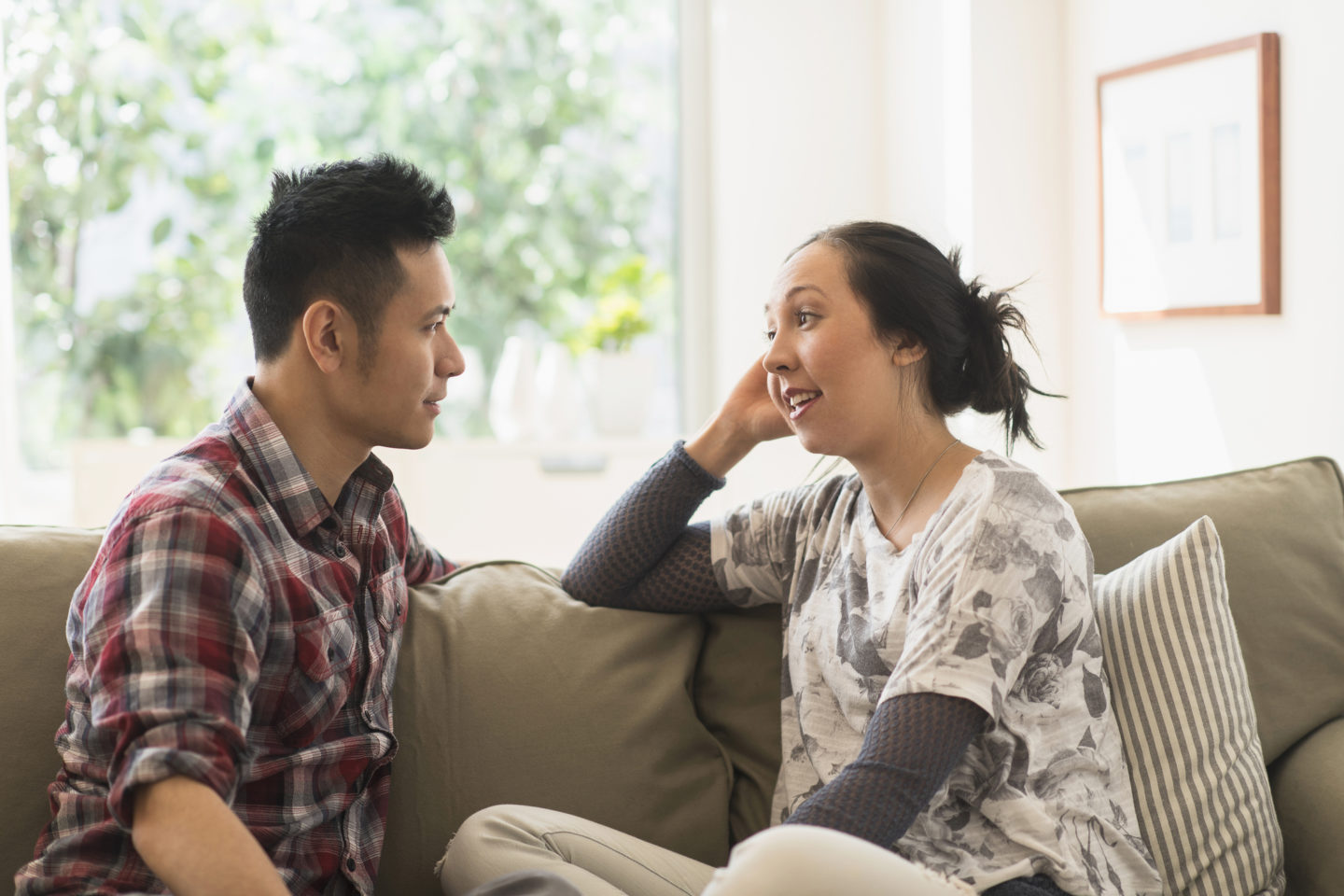Disclaimer: Safe sex is the only way to prevent yourself from unintended pregnancy and sexually transmitted infections.
Congratulations – you think you’re ready to have sex without a condom! But first, there are a few – actually, a lot – of things you need to know. Starting with this: Safe sex is the only way to prevent you (and your partner) from unintended pregnancy and sexually transmitted infections. While oral contraceptives and other forms of birth control (ie., the shot or intrauterine devices), do protect against pregnancy, only a condom blocks against the transmission of sexual infections such as HPV, chlamydia, herpes, HIV, syphilis, or more.
“Even though a patient may be on birth control, there is definitely still a chance that she can get pregnant, especially if she isn’t taking the pill every day at the same time,” says Carla Guarini, MD and graduate of Robert Wood Johnson Medical School. “A patient should make sure to have her partner tested because without the barrier protection of the condom, there is no protection against any STDs like gonorrhea, chlamydia, HIV, etc.”
Sometimes people in monogamous relationships, who have taken proper safety precautions —meaning some form of reliable contraceptives — who have gotten tested for STIs and who trust each other, decide to have sex without a condom. If you are currently in a relationship and considering doing the deed sans condom, there’s a lot to reflect on before giving the go-ahead.
(Consent reminder: Even if you give the go-ahead, you can always take it back if you feel uncomfortable and change your mind. Never feel bad about rescinding consent.)
The truth is in the pudding: Skin-to-skin contact feels way better (for both parties, regardless of their sex or gender) than the barrier of condom material. But while coming (ahem) to terms with that truth, we must also realize that having sex – with or without a condom – is paired with massive responsibility. When you consent to sex without a condom, you’re opening yourself up to not only the possibility of an unintended pregnancy but also coming into contact with another persons’ bodily fluids – a biological reality that makes you susceptible to contracting an STI.
“Every time you have sex, even if you are going to use a condom, make sure there are no ulcers or lesions (things that look like pimples) around your partner’s genital area. If there are, they could be an active herpes outbreak,” Guarini says. “Even if you do use a condom with someone with open lesions, if the lesions are in an area the condom doesn’t cover, you can still contract herpes.”
Infections can be spread by vaginal fluid, semen, pre-ejaculate, and blood; any contact with these bodily fluids puts a person at risk. If your partner does not have a history of any STIs, then you should be in the clear. If you don’t know whether your partner has an STI, you should have a conversation first before consummating the relationship without a goalie. If your partner does have an STI, you should also have a conversation about what having unsafe sex with this person means for both of you.
“Just in case you have skipped a few (or more) oral contraceptive pills, ovulation normally happens two weeks after the first day of your period, so that means you are most fertile 10-16 days after the first day of your last period. Avoid having sex during that week. But birth control works by preventing your ovaries from releasing eggs so if you have missed a few days of pills, it throws off the hormone balance in your body, allowing you to ovulate at any time,” Guarini says. “To be the safest, if you’ve missed a few pills, wait to have sex without a condom until you get your period the next time. Then start taking your pills normally. Use condoms during sex until then.”
Sexually transmitted diseases aren’t the only repercussions of raw-dogging it that you need to be aware of. According to a recent Australian study, having sex without a condom also increases a woman’s risk of developing bacterial vaginosis. Nothing is transmitted in this case, as the male partner can be clean; essentially, condom-less sex disrupts the vagina’s natural ecosystem, boosting infection-causing bacteria that already live in the vagina in healthy amounts. Bacterial vaginosis symptoms include painful sex and discharge categorized as “unusual,” therefore unrelated to the menstrual cycle.
Speaking of fluids, let’s talk about semen. When and if you decide to go through with unprotected sex, you should know the semen ejaculated into you won’t just disappear or… uh… absorb. Sperm “pools” in the vagina, like a puddle, once it’s ejaculated, but since it doesn’t really travel through the miniscule opening of the non-dilated cervix unless a woman’s ovulating, it will likely run back out (especially if you’re immediately vertical).
Yeah, it’s gross: Sperm drips out the vagina. But it’s better to know that’s the case before you do it for the first time and that happens to you. Don’t panic – it’s totally normal.
Before making the decision to bareback it, make sure your birth control is in order. If you’re taking oral contraceptives, this means taking your pill every single day. In the event that you miss a pill, take it immediately, as soon as you remember. If you miss more than one, immediately refer to your particular birth control’s instructions or consult your gynecologist for next steps. Birth control takes – at minimum – one week to become effective (make sure to consult your gyno about your specific brand, as some take a month) so make sure to postpone any free-willy-ing until oral contraceptives do their thing. For hormonal IUDs, most doctors say to wait seven days, using back-up birth control until the intrauterine device kicks in. Again, consult your doctor for best practices.
Last thing you need to know before getting freaky in the sheets: Both you and your partner should get checked. Within a month of having sex without a condom, you should be scheduling a screening to ensure that neither of you has contracted anything. In the wake of your first screening, you should continue getting tested at least once a year after that.
“Never be afraid to ask your partner about sexually transmitted diseases,” Guarini says. “You are your best advocate for your health.”




comments